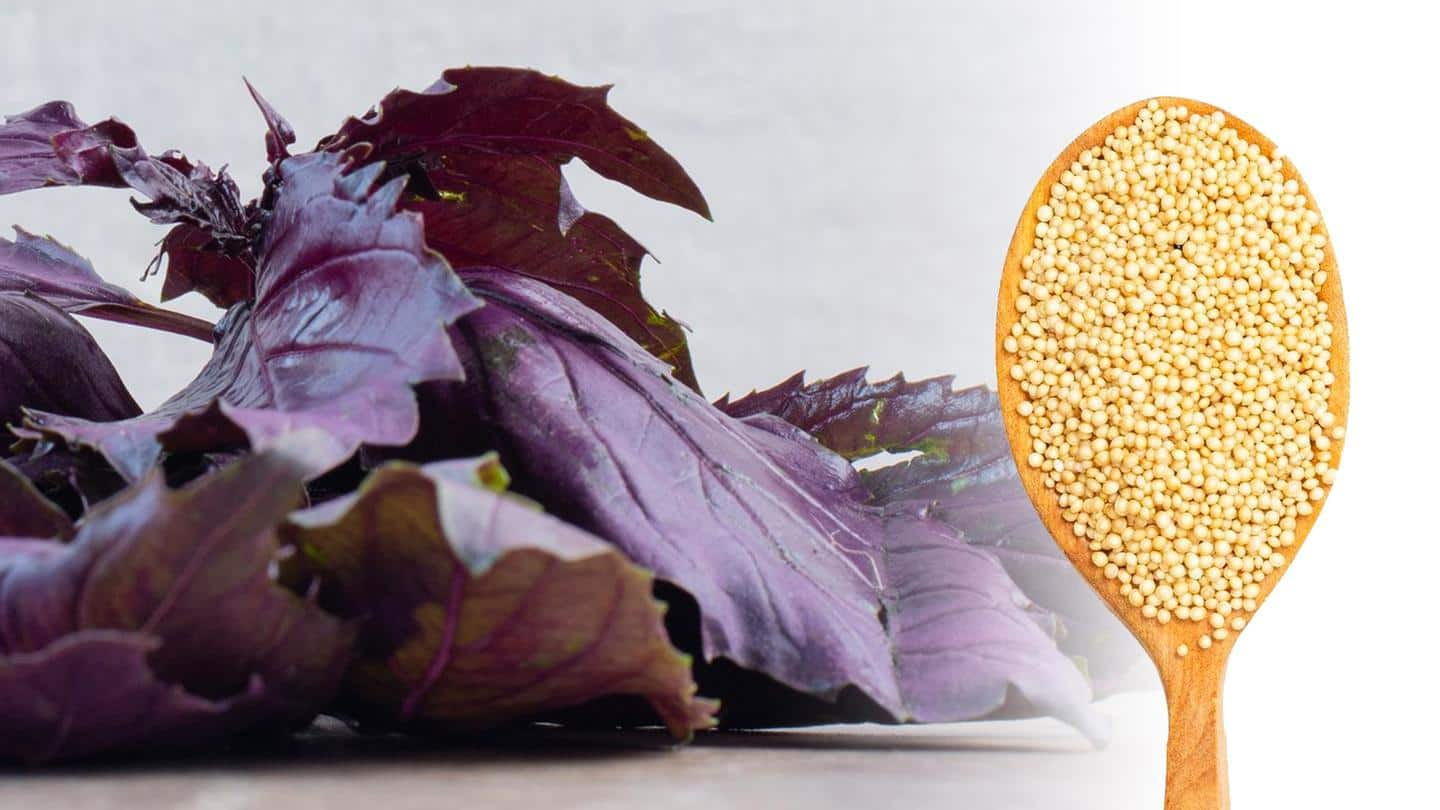
5 amazing health benefits of the superfood amaranth
What's the story
One of the most popular and ancient healthy foods, amaranth is a group of over 60 different species of grains that have been cultivated for about 8,000 years. Considered a staple food in Inca, Aztec, and Maya civilizations, these nutritious grains are gluten-free and packed with micronutrients, protein, antioxidants, and fiber. Here are five health benefits of amaranth that you must know.
Context
Here's what our expert says
Amaranth is one of the ancient supergrains that are known to mankind. Its seeds, that have been used as flour, and roasted as whole to make gluten-free snacks, are full of fiber, proteins, antioxidants, and minerals. Its leaves and stems are also edible and can be eaten as an alternative or in addition to spinach, which provides antioxidants and minerals like iron and zinc.
Weight loss
Helps to lose weight
Adding amaranth grains to your diet helps you to lose weight as they are low in fat and have zero cholesterol. Packed with fiber and protein, these grains help you to stay fuller for a longer period of time. The fiber in amaranth may move slowly through the gastrointestinal tract undigested which promotes feelings of fullness. 100 grams of amaranth contains 23 calories.
Cholesterol levels
Helps to lower cholesterol levels
High cholesterol levels can lead to several cardiac problems. According to research, the phytosterols and oils in amaranth are highly effective in lowering cholesterol levels including triglycerides and LDL. According to a study on hamsters, amaranth oil lowered total and bad LDL cholesterol by 15% and 22% respectively. Amaranth grain also helped reduce bad cholesterol while increasing good cholesterol.
Immunity
Boosts your immunity
Loaded with heart-promoting antioxidants, vitamins, and minerals, these power grains help boost immunity. Amaranth is rich in vitamin C, which helps fight off infections and is needed for quicker wound healing. It also reduces the effect of free radicals in the environment which leads to skin aging. 100 grams of amaranth leaves meet 70% of your daily requirement of vitamin C.
Digestive health
Helps in digestion
A low-fiber diet can lead to indigestion, bloating, constipation, and other digestive issues. High in fiber, amaranth leaves help keep you full and are easy on the digestive system. It also helps slow down the absorption of sugar to let the body keep up with energy production. Amaranth helps treat gastric ulcers and increases the frequency of bowel movements.
Anemia
Great for treating anemia
According to several studies, iron-rich and plant-based foods like amaranth grains help reduce the chances of developing anemia by producing red blood cells and stimulating cellular metabolism. The vitamin C in it facilitates maximum absorption of iron in the blood. According to a study published in Public Health Nutrition, Kenyan children who added amaranth to their diets experienced an improvement in anemic symptoms.